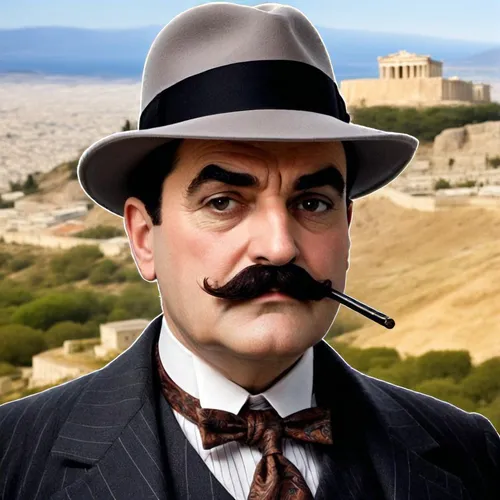Warsaw, April 1943
Friedrich Vogel walked with a brisk, almost arrogant stride through the narrow alleys of the Jewish ghetto, his gaze radiating a coldness so absolute it seemed nothing could touch him. The black uniform of the Waffen-SS and its silver insignia were armour enough, rendering him impervious to the fear and hatred his presence provoked. The barricades of walls and machine-gun nests assured him that nothing—human or rebellious—would dare threaten him. He had just left a meeting with his superiors, which had filled him with exhilaration and hubris. The orders were clear, and the confidence with which they had been delivered sent a surge of joy through him, stronger and more unexpected than the day he had been promoted to Untersturmführer. Until now, he had felt nothing but rage over the humiliation inflicted by these "rabble" and their stubborn resistance to deportation. But now everything would change, and he vowed to see it through.
Preparations would begin immediately. He harboured no doubt that the operation would succeed. As he approached the military installations, he glanced around, seeing despair entrenched everywhere. The whispers and coughs of starving people echoed, but he pressed on without hesitation, dismissing them with the contempt of a labourer swatting insects. Nothing could stand in his way. Not even those who had stirred chaos in recent days, foolishly believing they could resist. His eyes briefly caught a few daring souls scavenging splinters from old doors before they even hit the ground, visibly anxious that soon even this would vanish. He did not look back. Their fate was sealed. Today, everything falls into order, he thought, clenching his fist.
Arriving at his unit, he ordered all men to assemble. Three dozen soldiers lined up before him. He glared fiercely and began: "We’ve sat idle long enough. Tomorrow, these human vermin will feel our wrath. We move in." Raising his right hand, he barked, "Heil Hitler."
Hundreds of meters away, a tall concrete wall separated tormentors from their victims. Within these cramped three square kilometres, 460,000 souls were trapped. In the night’s silence, sporadic gunfire and retreating German shouts echoed. Some whispered rallying cries; others watched German movements with fingers on triggers. A few brave or desperate souls dared to act. Through rubble and half-collapsed buildings, Miriam Cohen dragged her ten-year-old son Samuel toward the resistance headquarters at Muranowski Square. Her calloused hands trembled as she gripped him. He was all she had left.
She had already lost three children. Little Rivka starved when aid no longer breached the wall. One night, while scavenging for bread in the dark, her son Joseph was shot dead by a German soldier at the wall. Her eldest, David, and her husband, Abraham, were taken in the first round of arrests, told they were being sent to labor camps. Days ago, new "transfers" revealed they had been executed alongside thousands in Treblinka’s gas chambers. The doctor who forged their papers had paid with his life. Grief in Miriam’s eyes often gave way to rage, and so she chose to fight. For Samuel. She would die fighting, not numb, to give him a chance.
At the headquarters, she kissed his head. "Stay inside. You’ll be safe here."
"Don’t go, Mama."
"I have work to finish. If things turn bad, leave. Don’t wait."
"Where would I go?"
"There are hidden tunnels here leading to freedom."
Samuel wept, embracing her one last time. "I love you, Mama."
The next day, Samuel and another boy climbed onto a roof with two flags. Samuel raised the blue-and-white resistance flag; the other, Poland’s red-and-white. Gunfire erupted, but the boys stood unharmed. The flags waved visible across the ghetto. Miriam sensed who had raised them and joined the fighters’ defiant cheers.
The flags flew for a week. By week’s end, resistance crumbled. Instead of organised assault, the Germans methodically erased the ghetto building by building. Structures not flattened by bombs were torched with flamethrowers. Smoke, dust, and yellow ash hung thick, stinking of burnt flesh. Streets filled with dismembered corpses. Germans executed anyone found—women, elderly, children. Ten days later, the flags fell.
Miriam hid with fighters in a cellar, unchanged since leaving Samuel. Gunfire and explosions surrounded them. Out of ammo, they awaited death rather than capture. Waffen-SS stormed in. A soldier grabbed her collar and shoved her to another: "Wilhelm, take something to enjoy tonight." Miriam shoved back. Then, with a mad smile and the courage of one who had lost everything, she pulled the pin from a hidden grenade. Seconds later, Wilhelm, Friedrich Vogel, and dozens lay dead. With her last breath, Miriam whispered, "Abraham."
Samuel escaped through a tunnel with dozens. At first, dawn seemed endless. Then darkness swallowed them. Explosions echoed from the ghetto. Three times he fell, and someone lifted him. After hours of walking, he looked back and saw black smoke rising over Warsaw through the haze. It was spring 1943, but the cloud resembled autumn’s gloom. They reached the Michalin Forest and freedom.
Gaza Strip, October 2023
Cut to the present, same play, different cast. Samuel Cohen held the rank of Segen in the Israeli army. Three dozen soldiers lined up before him. He glared fiercely and began: "We’ve sat idle long enough. Tomorrow, these human vermin will feel our wrath. We move in." Fortunately, his grandfather had died five years prior and hadn’t heard these terrible words.
Hundreds of meters away stood a three-meter wall encircling 1.5 million souls. Fatima Al-Husseini mourned over her five-year-old daughter Laila’s lifeless body.
A unit led by Samuel approached. He expected an easy victory, easier than predicted. But he hadn’t anticipated Fatima’s mad smile when she saw them. He hadn’t foreseen the courage of one who had lost everything. He thought history favoured him, inherited from his grandfather. He didn’t realise he’d betrayed it, that history had more pages to write. He ordered her arrest, then the unexpected happened. Fatima pulled the pin from a hidden grenade, beginning her own journey toward the Michalin Forest.





This story has not been rated yet. Login to review this story.